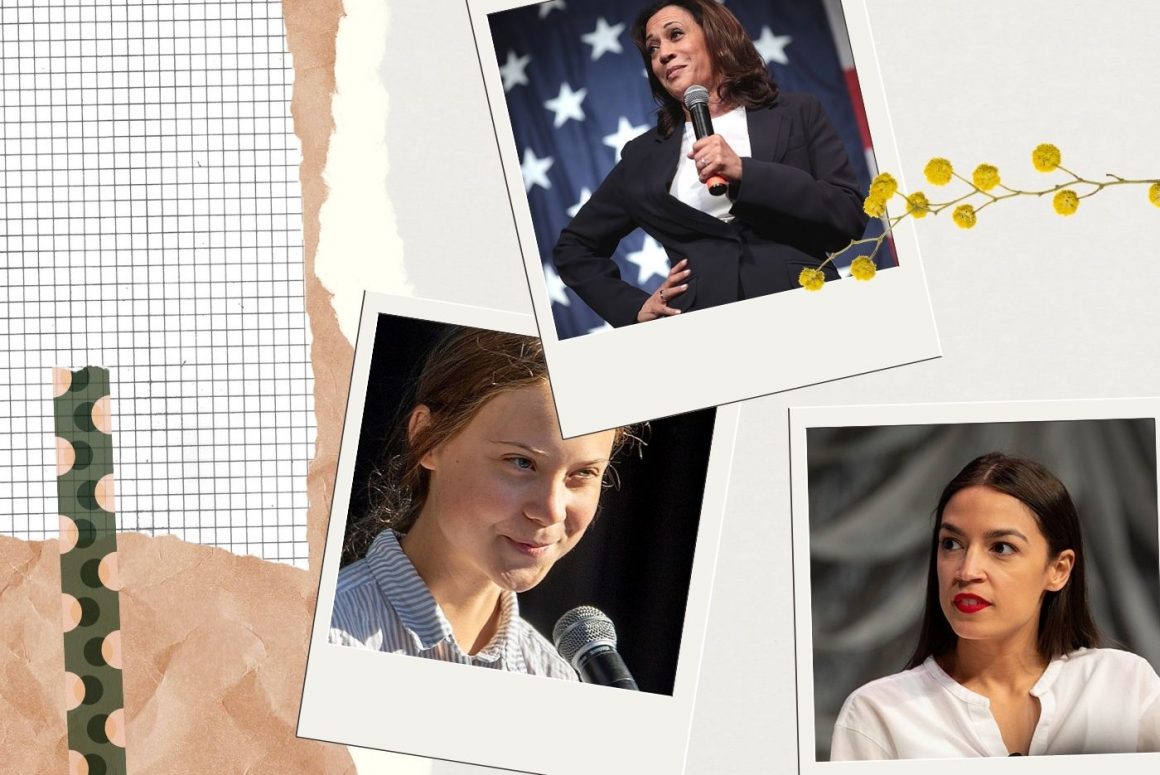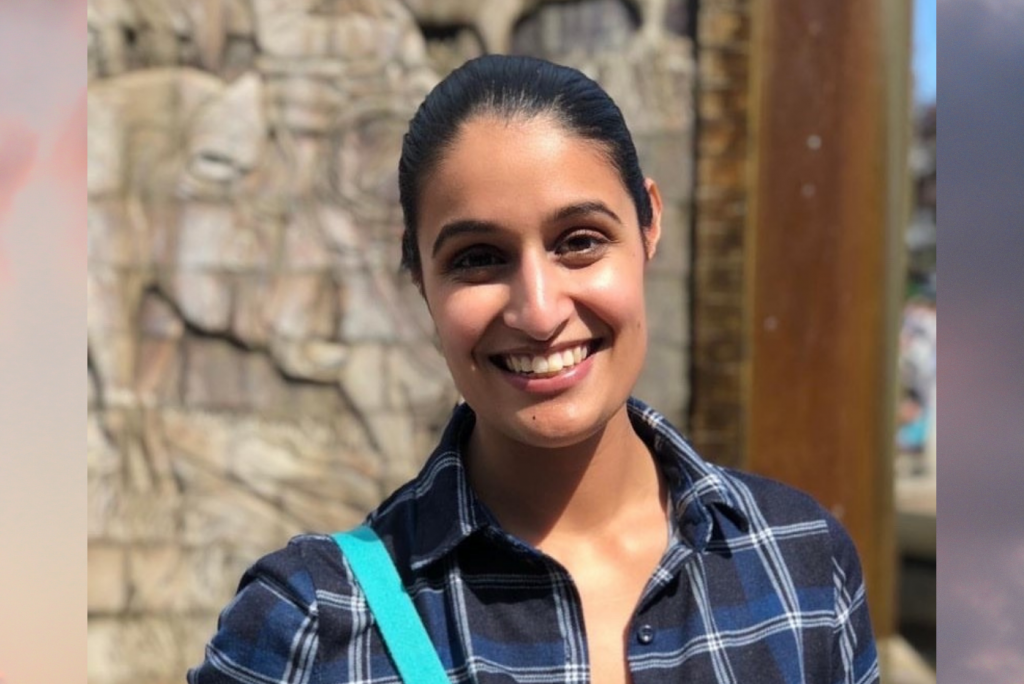
Spill the Chai: On women of colour in politics
By Aymen Sherwani, November 2, 2020—
In a world full of Alexandria Ocasio Cortezes and Kamala Harrises, the impact of women in politics has become self-evident as a global phenomenon. At the same time, it’s no surprise that there’s been a “reactionary” response to the somehow incredulous notion that a woman could ever be within a political space. It has become self-evident in a world of “Boys’ Club” politics where male politicians refer to their often more socially-conscious female coworkers as too aggressive and hormonal for higher offices in government.
It has become self-evident when grown men deem the Malala Yousafzais and Greta Thunbergs of the world too immature to have valid political stances, but turn around and sexualize them. I’m looking at a particular energy services company — maybe next time put your money towards having a functional website, and not on creating and distributing laptop stickers that seem to depict a child environmental activist getting raped. While Canada and the US still have difficulty grasping the concept of allowing women into politics in general, there’s something particular to be said about why so few women of colour are in politics, and why so often they begin to see themselves as imposters.
Family dynamics, especially within communities of colour, associate gender roles with roles of power within the family, which then translate to roles of power within the community, and ultimately politics. In patriarchal communities like the South Asian diaspora, women are often discouraged from seeking office, aside from being discouraged to work at all. For our parents’ generation, to be an opinionated and working woman within South Asian society implies that you are less of a woman, and less of a mother, as you fail to commit yourself to your most essential role — being at service to your family. It speaks volumes as to why younger South Asian girls internalize how they view themselves in proportion to men, and who they believe holds power.
In an interview with the Gauntlet, Manpreet Sahota, a Sikh woman and the 78th Science Representative of the University of Calgary’s Students’ Union, says that “as a brown girl in politics, I’m doing this for the other brown girls that were told to sit pretty and to sit quietly and to only speak when I was called upon because I was one of those girls growing up.

“At the beginning of my term, I struggled with speaking up and meaningfully contributing to discussions about student advocacy, but I understood that the purpose of my role was to be at the forefront of student advocacy at multiple levels of university governance,” Sahota continued. “However, I felt intimidated in a room full of accomplished academics and even the highly involved students of SLC. I realized that the inability to speak my mind was an internalized struggle that started at home. In a traditional South Asian household, there’s often an expectation to listen to your elders and avoid raising controversial points as they are viewed as defiance. It’s the reason why I felt like I was programmed to contribute to conversations in a certain way.”
This dynamic has been changing with the rise of educated and empowered women from diaspora cultures, such as Sahota, choosing to take office to not only provide more active change but to also empower their fellow women of colour to take on roles of leadership. Sahota adds that she wants “other brown girls like me to believe in themselves and to believe that their voice matters and that any one of them can make a meaningful contribution to the world.”
Despite this, to Sahota, it’s important to acknowledge that minority representation is a two-way street, especially when it comes to women of colour in politics. She says that, while minority voices are necessary for progress, in order to achieve that progress “institutions that have the responsibility and honour of representing a multitude of voices must avoid tokenism and value the lived experiences of minority groups.” We need a world where everyone at the table feels as though their identities are an asset to political change, not an accessory to mask political stagnation. It is through these voices of colour that the language of the underrepresented becomes fully realized.
The past year has been more than just rough on students with the one per cent interest rate increase on student loans, and the five per cent increase in student tuition, on top of the mental health and learning issues that stem from mandatory isolation. Something that so many people haven’t even considered is the fact that international students are paying even more just to watch glorified Khan Academy videos dubbed as “remote learning.” The issues of proper representation have become really evident within the past six months as both quarantine and the calls for racial equality have swept across the US and Canada.
Frustrations are at an all time high with tuition fees being increased this year, despite the fact that COVID-19 has left many students unemployed, alongside the constant undermining of the Black Lives Matter movement by our government and by professors who teach politics (i.e. MRU Professor Francis Widdowson). When asked about what she thought about Widdowson, who said that “the Black Lives Matter movement has destroyed MRU,” Sahota asserts that “saying that systemic racism and institutional racism don’t exist are discourses of erasure, and are not positively contributing towards any social change. It’s like you’re turning a blind eye to so many united voices instead of listening to them.”
The work that Sahota has done in the past, such as addressing racial privilege during campus Diversity Days through her campaign for Equity, Diversity, and Inclusion (EDI) is living proof of how change can be fostered through having these uncomfortable conversations about discrimination, which would not be occurring in the first place without the existence of people of colour, especially women of colour, within politics.
Sahota, who says she has experienced racial microaggressions on campus before, wants to encourage other students and faculty staff to question their unconscious biases in hopes to unravel them, and pave the way for a more inclusive campus. Sahota concludes by saying that she’s glad that the Black Lives Matter movement and the student voice have ignited these conversations, and have led to the appointing of Dr. Malinda Smith as the vice-provost for equity, diversity and inclusion to help provide guidance on tackling these issues.
“The SU has become my home and I hope you also find your home during your university journey. I want you to be proud of who you are and surround yourself with people that want to see you succeed. As always, I will be here for you as a student representative and a first-generation Punjabi-Canadian that struggled to find a purpose.”
Manpreet Sahota, our 78th Faculty of Science Representative, can be reached at science2@su.ucalgary.ca.
Spill the Chai is a weekly column that seeks to showcase the talents and achievements of the South Asian and Middle Eastern communities at the University of Calgary campus, but also “spills the chai” on the issues they face on a daily basis, by speaking power into the narratives of the many students of colour on campus. This column is a part of our Voices section.
